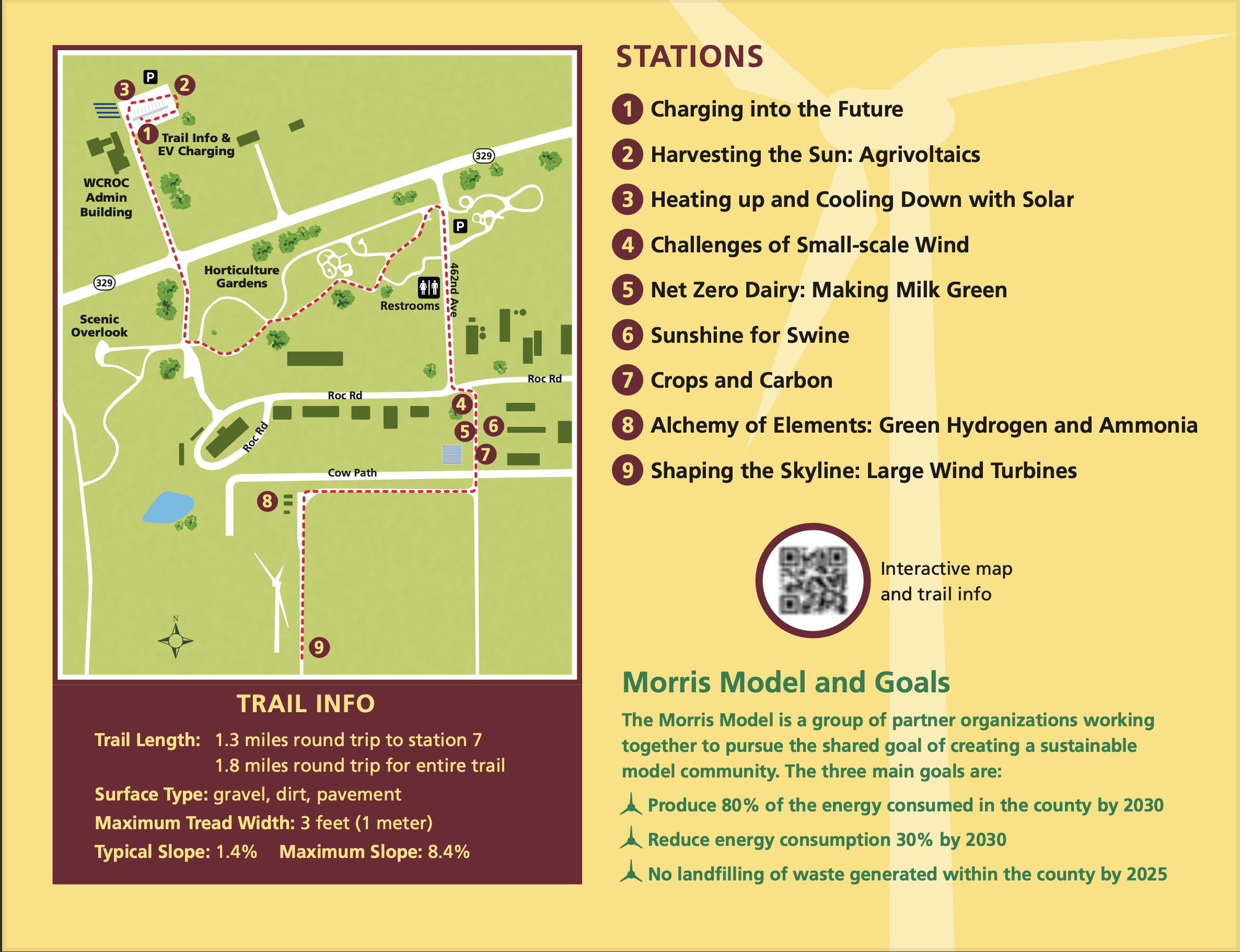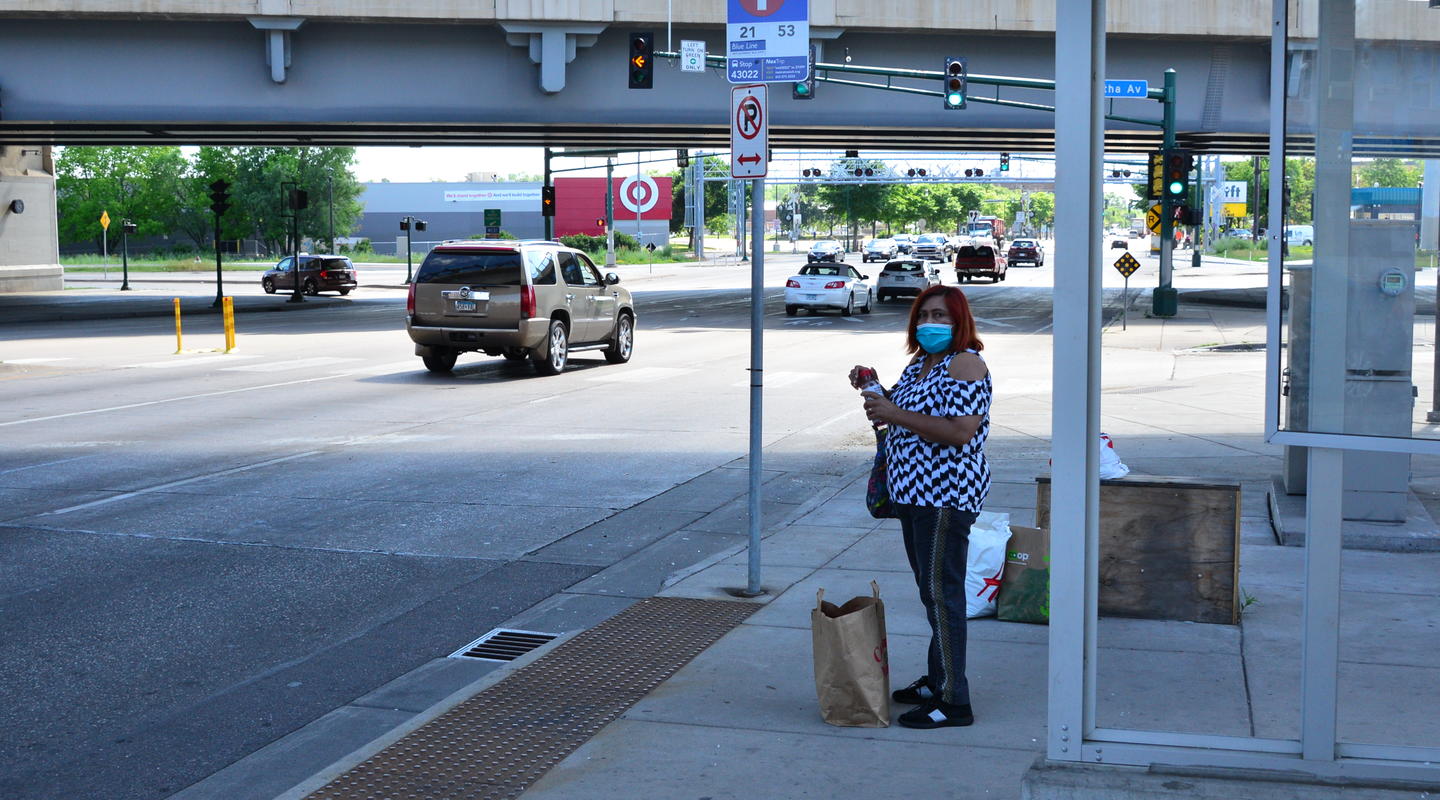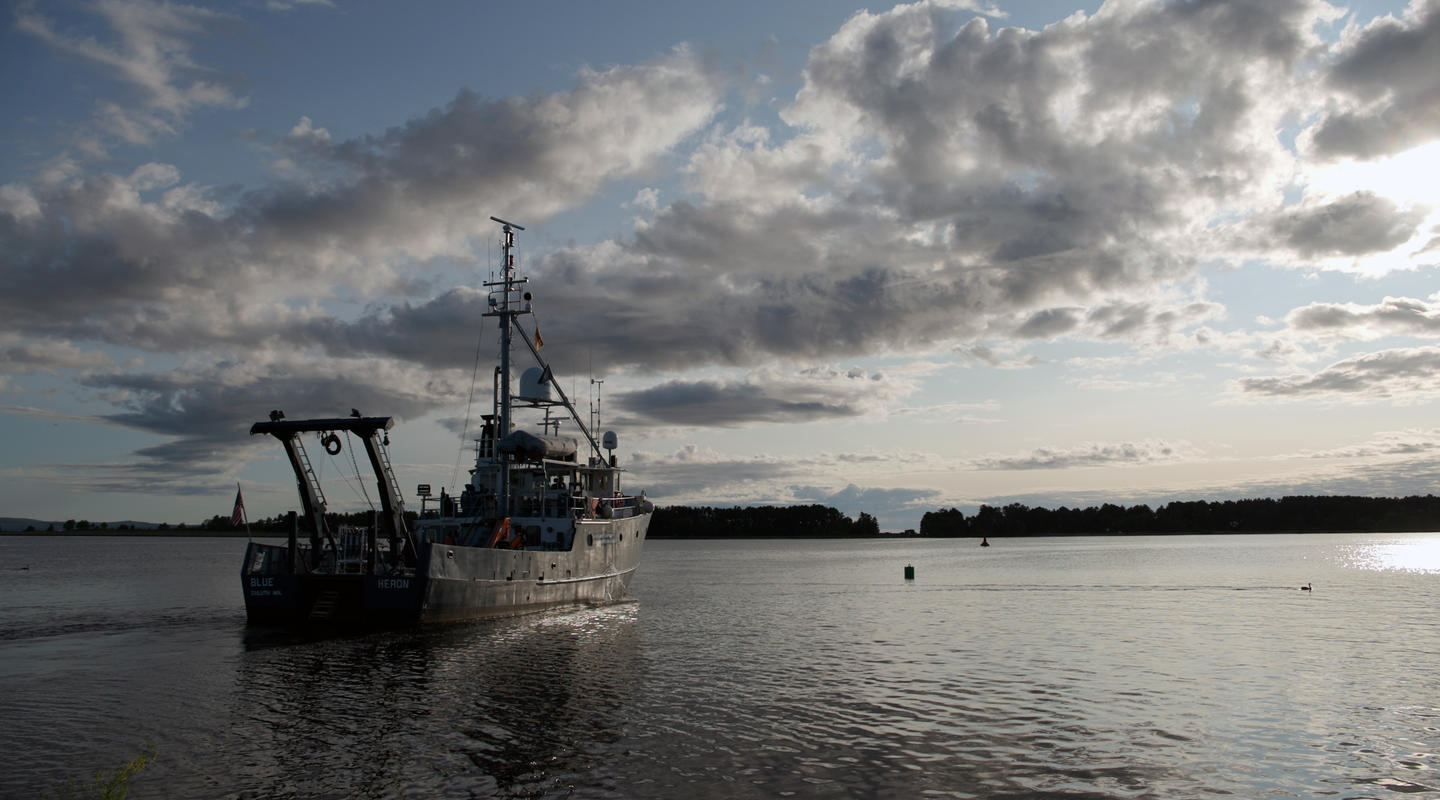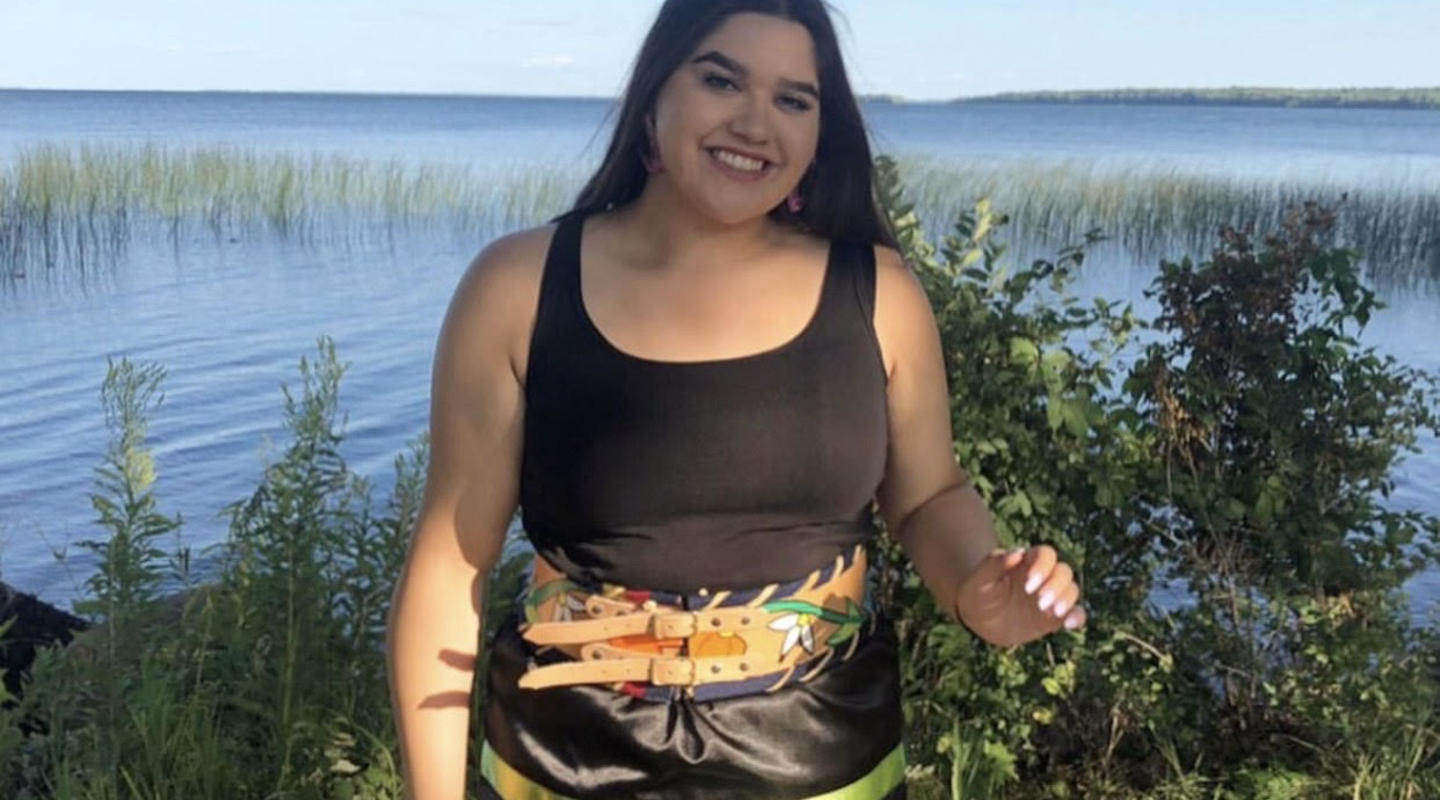Courtesy of WCROC
When University of Minnesota Morris student Cameron Berthiaume was looking for a summer internship, they really didn’t have to look far. They found it at the University of Minnesota’s West Central Research and Outreach Center (WCROC), just across Highway 59 from the U of M Morris campus.
Berthiaume wanted to do something that aligned with their passion for environmental policies and programs. After receiving a list of potential internships, they thought one particular three-month project at WCROC would be a good fit: designing a self-guided trail through the grounds to highlight renewable energy research projects being conducted there.
“The goal of the trail is to engage and educate the public about renewable energy systems and showcase how WCROC research on farm energy use can benefit agriculture,” says Berthiaume, who had never been to WCROC prior to the internship.
Their first task was to learn about all that was happening at WCROC, including the use of solar agrivoltaic panels and solar thermal panels, energy efficiency projects in the swine and dairy barns, the ammonia and hydrogen production plant, and the wind turbine.
In addition to collecting information about individual projects, Berthiaume researched materials for the signs, optimal sign placement, and accessibility for the trail. That work included figuring out what kind of signs would work best and where they should be placed, addressing several accessibility issues, and, of course, succinctly and accurately describing the research.
Drawn to sustainability
Construction of the trail is expected to be completed during the summer of 2023. Funding for the interpretive signage and pathway construction is paid for by the sale of excess electricity produced by the wind turbine. Berthiaume’s work was supported by the Wally and Arlys Mumm Fund and the Vatthauer Family Internship Fund.
The trail will begin at the WCROC administration building, continue across the road to the swine barns, and go all the way to the wind turbine.
“You look out over the gentle hills in the Pomme de Terre River Valley, you can see the solar panels and the cows grazing, maybe a few birds. It’s nice,” Berthiaume says of the view from the start of the trail.
Having grown up in Eagan, Minnesota, Berthiaume never imagined working in an agricultural setting. The only agriculture in their background was an animal science class in high school. But Berthiaume really felt drawn to the project because of their passion for sustainability.
Berthiaume, who graduated in May, majored in environmental studies with a minor in political science. They hope to work with an environmental nonprofit after graduation, in a position that would combine both sustainability and politics.
“Environmental studies is relevant,” they say. “It puts you in a place where you can start to see how to have an impact.”
Support students like Cameron Berthiaume by giving to the University of Minnesota Morris Academic eXperiences (MAX) Fund or the Wally and Arlys Mumm Fund and the Vatthauer Family Internship Fund in the U of M’s College of Food, Agricultural, and Natural Resource Sciences.



